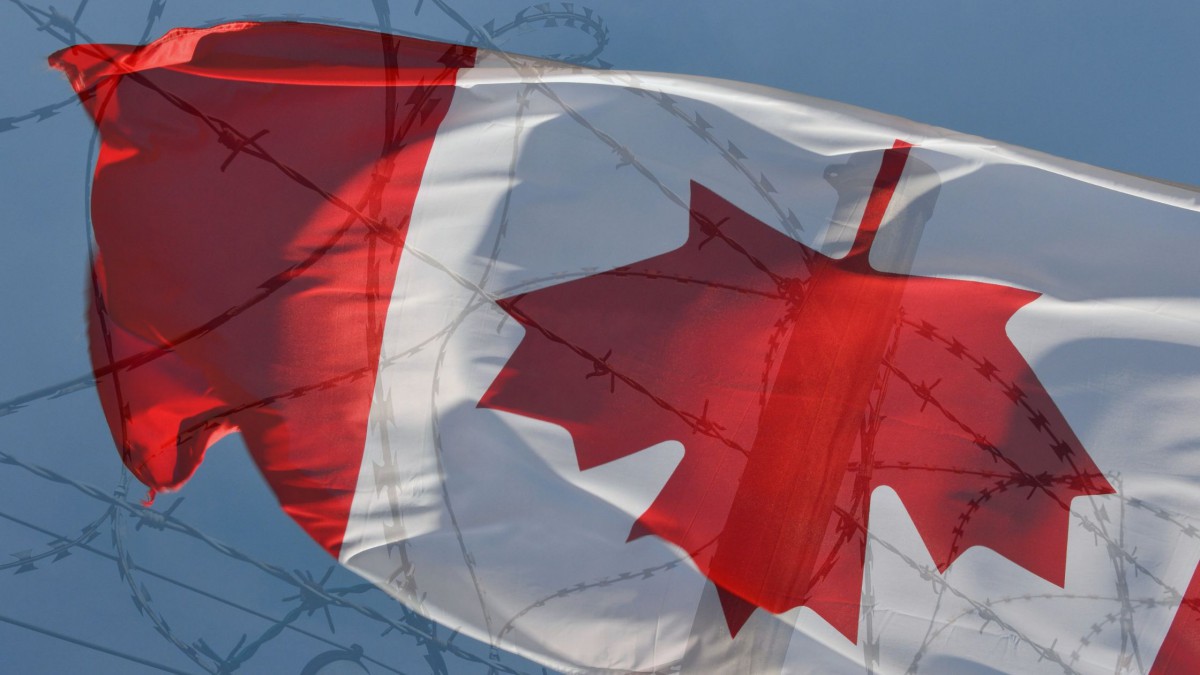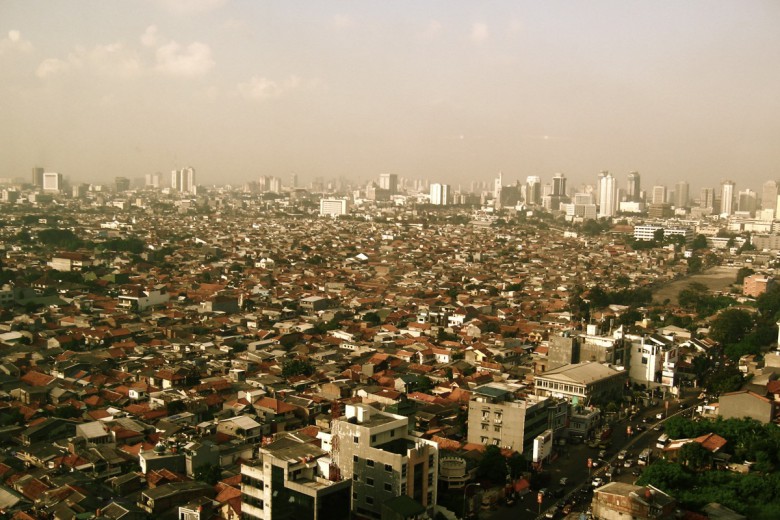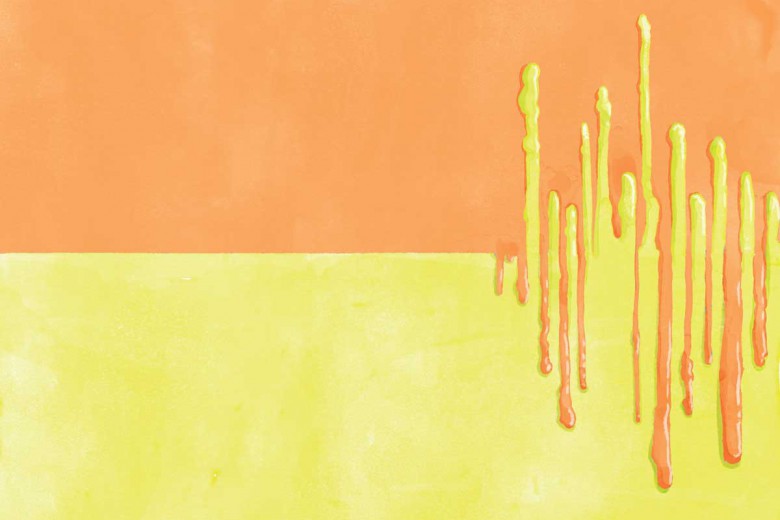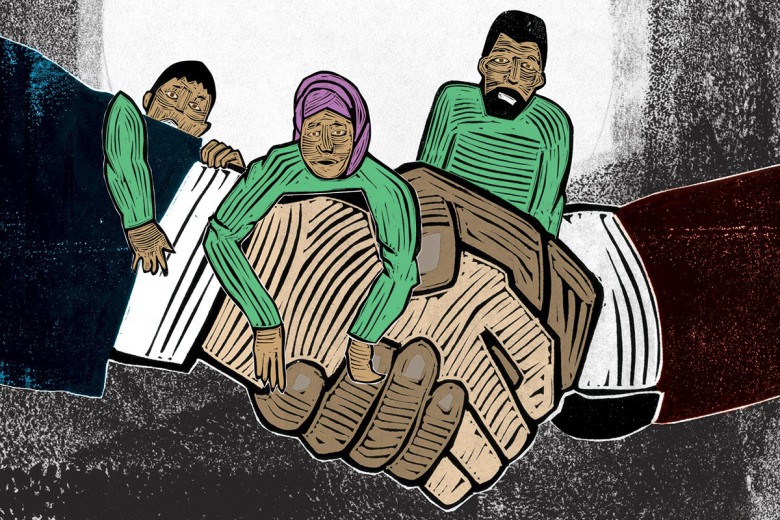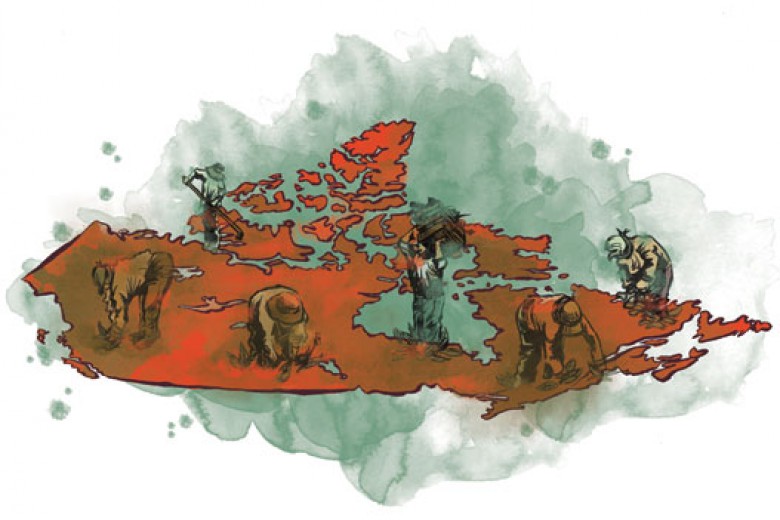Within faint memories, I hear my joy intertwining with that of my childhood friend, W.’s, transcending colonial regimes and borderlands. I fondly remember the sun and the swings holding our tiny bodies as we swayed freely in the air. I achingly remember the day I saw a picture of him and his sister – his face emotionally hollowed – on the front page of a newspaper. He and his sister could stay, but his parents, undocumented migrants, were being deported. All were stolen by the state with a nationalist claim of “safety.”
From my first sips of cedar-pollinated air in so-called B.C., I have been taught what it means to make a home in ways that defy the systems governing our so-called lawful citizenship within a settler-colonial state. Now, I also know that my existence as an uninvited settler on stolen lands inherently carries violence against Indigenous Peoples, cultures, and ecosystems. As a child, sharing a home with W. and his family meant basking in love, bliss, warmth, connection, and play. I did not understand what it meant to be undocumented; I could not and cannot fathom danger in the shape of my sweet chosen family, their red Caravan, or our shared meals infused with cultural inheritances. I did learn, however, to see the violence of the state: the borders, nationalism, and denial of kin.
White supremacist violence
Though the separation of so-called Canada and the U.S. as distinct nation-states came through settler-colonial infighting, it is still underpinned by violent racism. For example, the 49th parallel – the boundary that makes up the majority of the colonially-designated border between the nation-states – severed the connection of several Indigenous ancestral territories, including but not limited to the Syilx and Semiahmoo nations. Both Canada and the U.S. were formed through dispossession, displacement, and denial of Indigenous lifeways and existence. They are founded in white nationalism.
Now, economic and material control via threats of tariffs from the dictatorially hungry president next door has animated an uncritical reclamation of Canadian patriotism and nationalism. From slogans such as “Canada is not for sale!” to adorning businesses, homes, and personal vehicles with the Canadian flag, settler-colonial infighting does not merely mirror right-wing tactics of unity – as seen with the COVID-19 denialist, anti-vaccine convoys of the early 2020s, and the anti-migrant targeting of people from Asia in the early 1900s – it is a weapon used to further the nation-building project of so-called Canada. The goal is to justify the dominance of white European settlers by falsifying a white indigeneity to the nation-state.
Anti-migrant and pro-prohibition
The purported reasons for this wave of tariffs are 1) to intercept the flow of fentanyl into the U.S.; and 2) to block undocumented migrants from entering the state. Canada’s response has been to grow the budget for – and, therefore, private profits from – border militarization, which will fund military arsenals and increase employment opportunities in the border patrol sector at a time when job precarity is high. Not only will the border, military, and prison industrial complexes be booming, but social control is also being waged – via anti-immigrant policies and the imperialist drug war – as a weapon of ongoing colonial violence and allegiance to coercive power.
Current drug and im/migration policies in Canada have paved the way for these tariffs to influence an increase in punitive policies. Within the past few months alone, migrants have experienced severe policy shifts influencing their ability to legally work, gain permanent residency, and sponsor family. Creating precarious and uncertain conditions where migrants are forced to work underground, become undocumented, and/or separate from their families are common tactics of racial violence used by the state. Drug policy in Canada has continuously failed to address the toxic drug poisoning crisis, with increasing tendencies to claw back harm reduction efforts, mischaracterize the violence of prohibition as an opioid or fentanyl epidemic, and destabilize street supplies through the theatrics of drug seizures. All of these result in increased rates of disability, instability, and death for drug users.
Degrading internationalist solidarity
Another insidious way nationalism has taken shape is to discredit the tariffs against Canada specifically by arguing that the rates of undocumented migrants and illicit drug supplies crossing the Canadian border are significantly lower than those crossing the Mexican border. This response illustrates the racial hierarchy inherent in Canadian nationalist rhetoric, as the context remains ahistorical and insists the real enemy is in the bad place over there. The rhetoric wilfully ignores that the U.S. has never respected Mexico’s sovereignty. The U.S. has been a key actor in destabilizing the region through imposition of drug prohibition laws, sending armed forces into the region, continual expansion of the U.S.-Mexico border apparatus, and deregulation of agricultural sectors through extractive trade agreements. The state intentionally creates a narrative of individuals acting maliciously to distract from the roots of the crises they are claiming to respond to, because their response is what Harsha Walia calls a “method for capital.”
It’s vital that we do not abandon an internationalist solidarity with Mexico and the Global South at large in favour of individualist protections against tariffs. To really contend with this looming threat, settlers must first shed their attachment to a Canadian identity. We must dream beyond the soul-crushing limits of settler colonialism and instead lean into Indigenous resurgence and Land Back. Otherwise, cyclical politics of us versus them feed into a continuing history of inflating capital for the wealthy elite while abandoning those we scapegoat on the altar of moral panic – like W. and his family.


